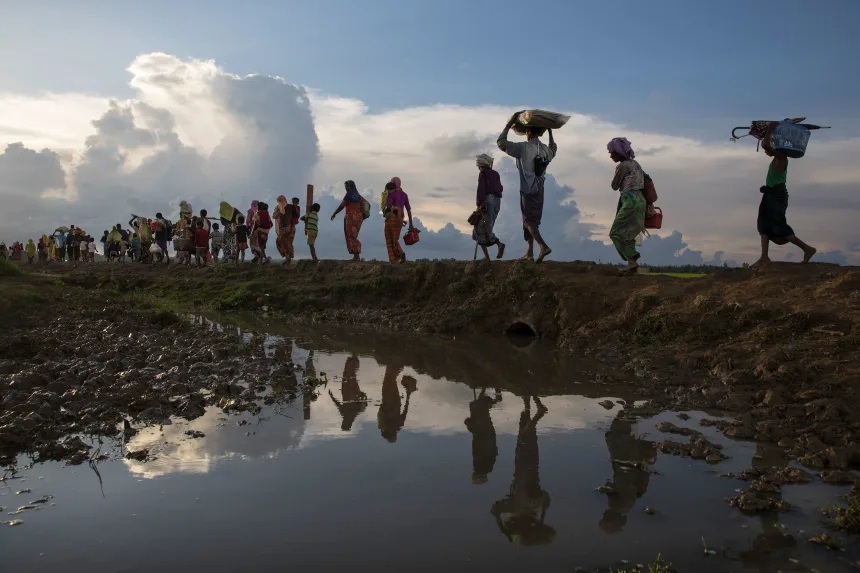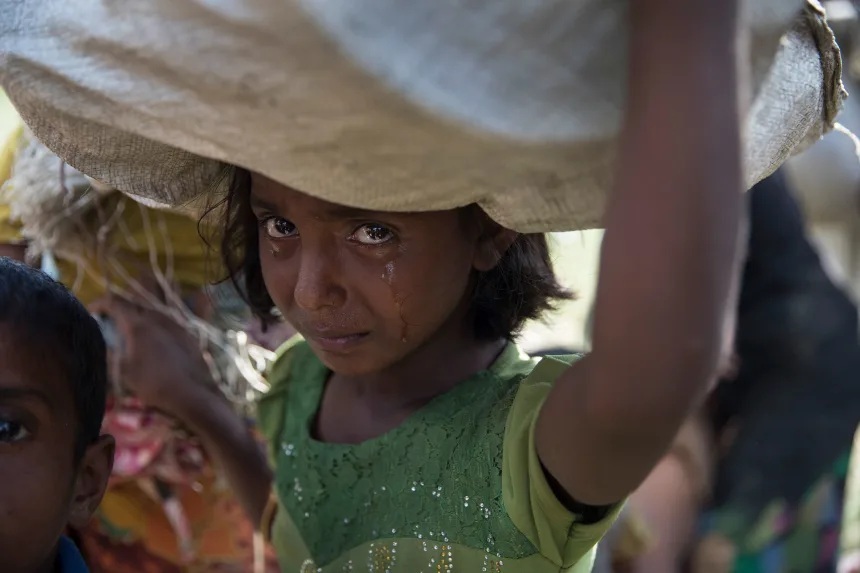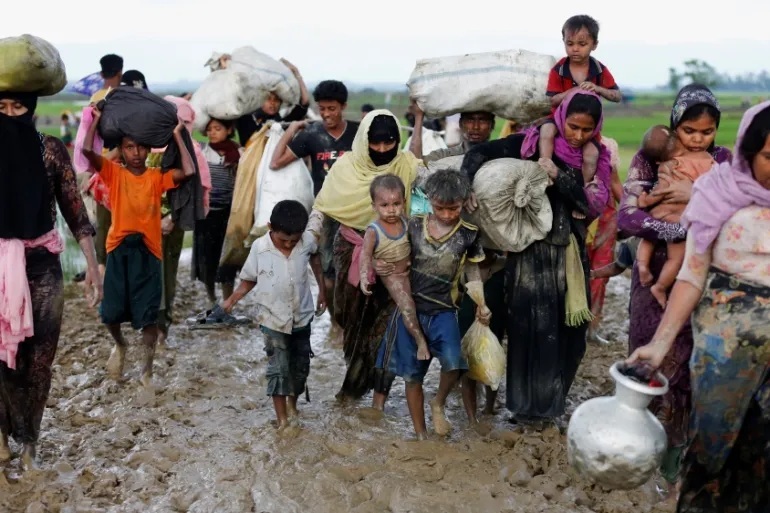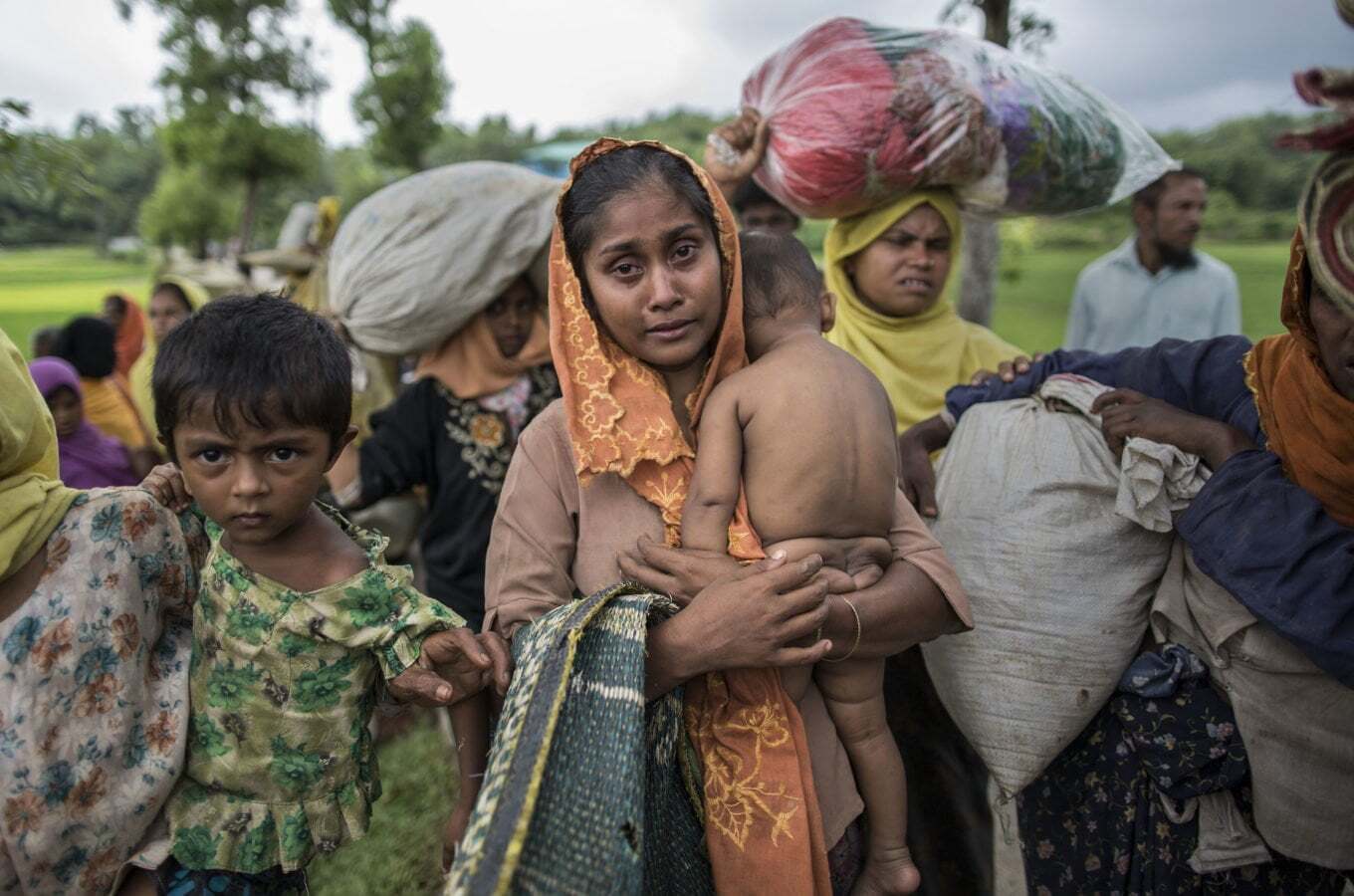Abandoned in the Waves: A Shocking Narrative of India's Inhumane Treatment of the Rohingya Minority
TEHRAN (Defapress) - In recent years, the global community has witnessed a profound humanitarian crisis concerning the Rohingya minority. This Muslim ethnic group, not recognized as citizens in Myanmar, faced widespread violence in 2017. The Myanmar military carried out an ethnic cleansing campaign that included rape, the burning of villages, and massacres. The United Nations described these actions as an "obvious example of ethnic cleansing."

As a result, hundreds of thousands of Rohingya people fled to neighboring countries, including Bangladesh, Pakistan, Malaysia, Saudi Arabia, and India. India, as one of the destinations, hosts approximately 20,000 of these individuals, many of whom have been recognized as refugees by the UN High Commissioner for Refugees (UNHCR). However, the recent actions of the Indian government towards these refugees demonstrate a clear violation of humanitarian principles and international law.
India's Ministry of Home Affairs has implemented policies that classify the Rohingya people as "illegal immigrants." The Indian Home Minister has repeatedly emphasized the deportation of this group in numerous speeches, and in May of this year, ordered that the validity of documents for individuals suspected of illegally entering from Bangladesh and Myanmar be verified within 30 days.
These policies are being implemented without regard to the Rohingya's refugee status. India is not part of the UN Refugee Convention and is therefore not obligated to adhere to the principle of non-refoulement (not returning asylum seekers to dangerous places). Nevertheless, based on humanitarian principles, returning migrants to a dangerous zone is an immoral and condemnable act.

In one specific instance in May of this year, Indian authorities rounded up 40 Rohingya refugees, including 13 women and 27 men, in New Delhi. These individuals, who had lived in India for years, some even planning to get married, were summoned under the pretext of providing biometric information for new identification documents. However, instead of undergoing an administrative process, they were detained without prior notice and without access to a lawyer or a court.
This action violates Indian laws that prohibit the detention of women after sunset or without being presented before a court within 24 hours. The Delhi Police and the special unit for detaining illegal immigrants called this operation "legal" but did not disclose its details, citing national security concerns. Investigations reveal that the group was transported on an aircraft belonging to India's Foreigners Regional Registration Office (FRRO) to the Andaman Islands. The flight lasted about three and a half hours, and flight tracking data shows the plane headed southeast, with its signal lost near the Andaman Islands.
After landing in Port Blair, the capital of the Andaman Islands, the refugees were transferred to a large white ship. Based on reviews by a CNN reporter using Automatic Identification System (AIS) data, between the afternoon of May 7th and the morning of May 9th, 24 civilian ships, including 12 passenger vessels, departed from Port Blair, but none were headed toward Myanmar.

They were blindfolded, heads bowed, and threatened with guns by Indian officers. The officers told them, "Your lives have no value. You have no country. Even if we kill you, no one will say anything to us." After several hours, they were transferred to smaller boats and abandoned in the darkness of the night in the Indian Ocean.
This act, which involves abandoning defenseless people at sea, is a gross violation of human rights. The UN Special Rapporteur on the situation of human rights in Myanmar called this action "brutal," "an affront to human dignity," and contrary to international law. These refugees faced an uncertain and perilous fate upon reaching the southern coast of Myanmar.
Myanmar is now embroiled in a civil war that began with the military coup in 2021. The same general who commanded the 2017 ethnic cleansing operations now holds power and considers the Rohingya identity "imaginary and unreal." The Rohingya people in Myanmar are denied citizenship rights and live under apartheid-like conditions. They cannot travel without permission and are often subjected to discrimination and violence.

The refugees abandoned at sea by the Indian government spent two and a half days without food. The group was rescued and given shelter by local residents and taken to a base of an anti-military armed group in Myanmar, but unfortunately, they are not in a secure situation. In a region where conflict rages between rebels, the army, and militias, the Rohingya people are known as the "most hated" ethnic group. Their families in India and Bangladesh are worried and have even offered to pay for their release, but have received no response so far.
This incident is only part of a broader pattern of repression against the Rohingya in India. On the same day, 103 others were deported back to Bangladesh. India's Supreme Court is considering a case on whether to recognize the Rohingya people as refugees or illegal immigrants; however, it has so far taken no action to repatriate this group of 40.
The Indian government has not yet responded to numerous requests for explanation, and this silence increases its responsibility for this human rights violation. The future of the Rohingya, abandoned in the darkness of the ocean amidst relentless waves, trapped between rejection and statelessness, underscores the urgent need to re-examine international commitments to protecting human dignity.
